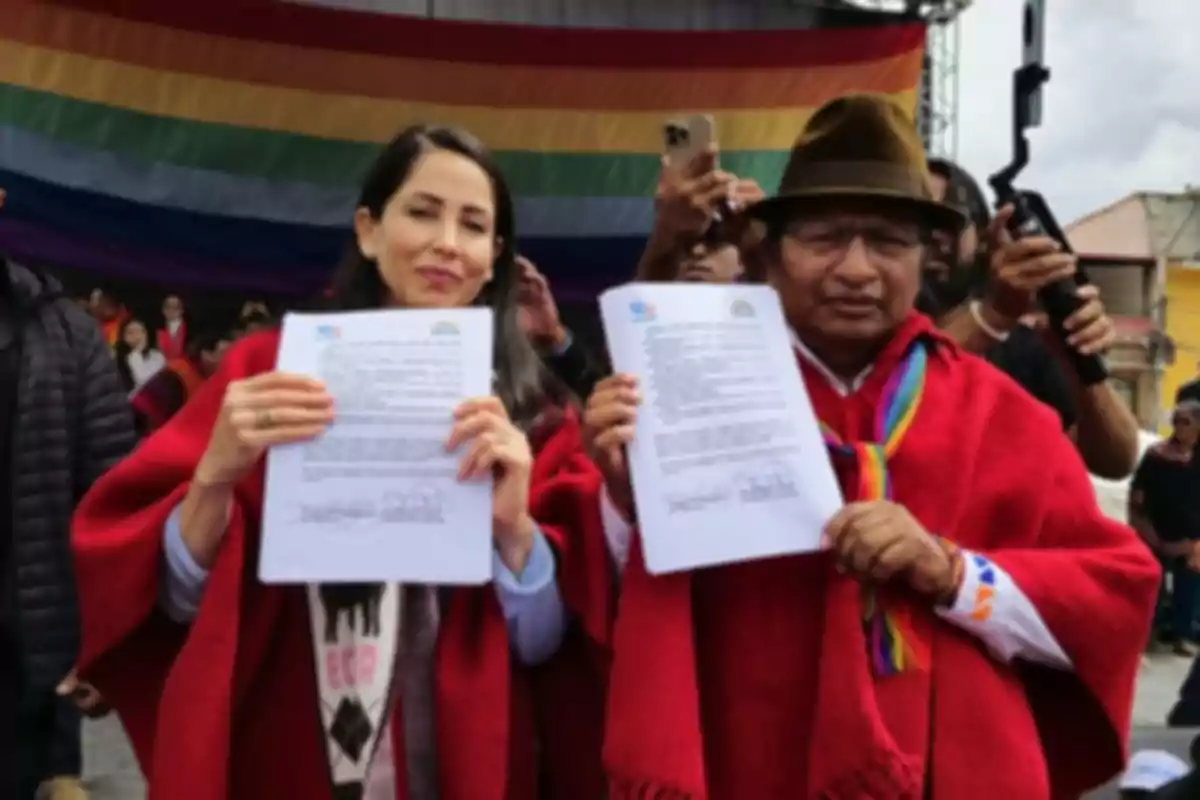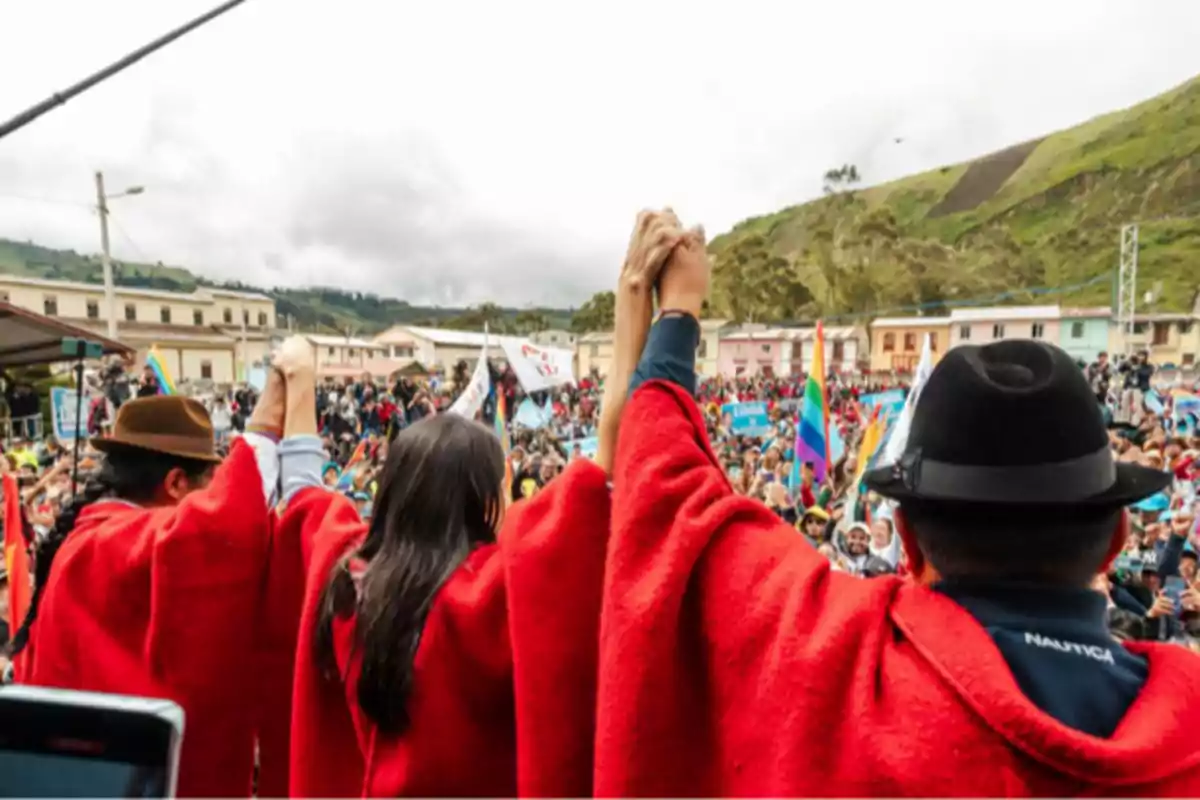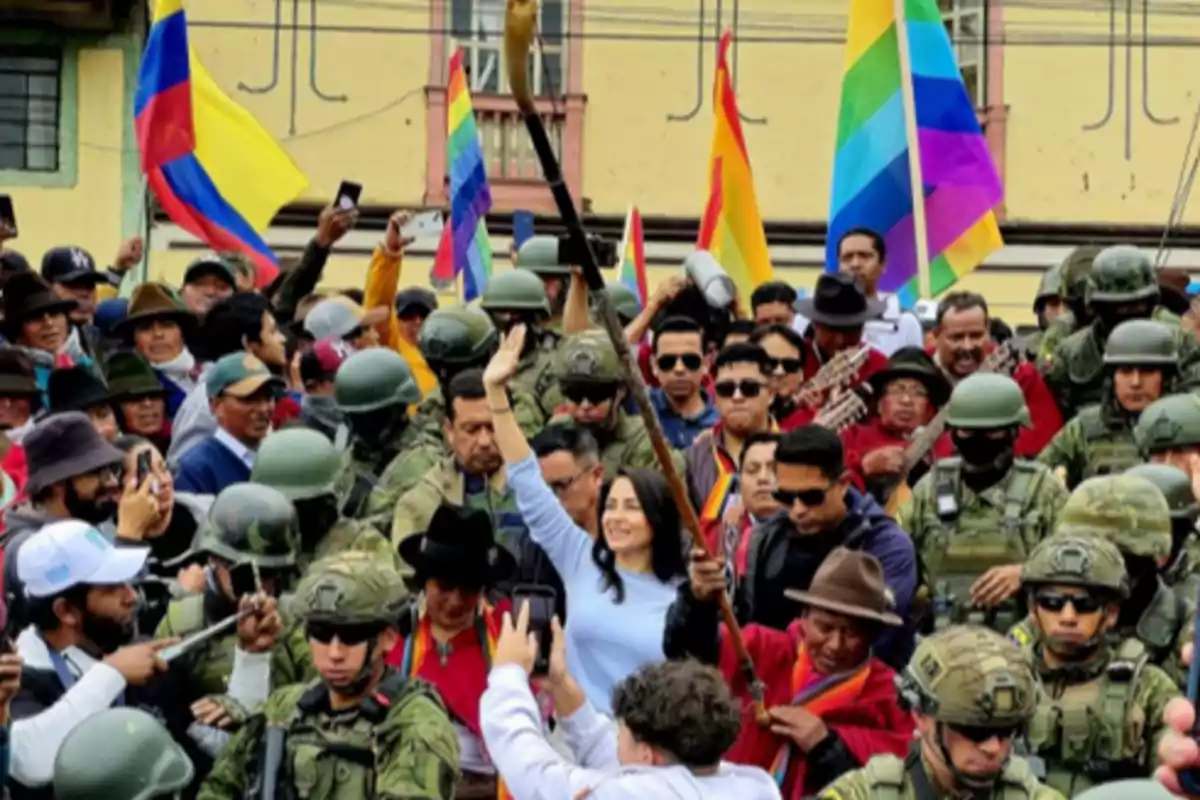
Luisa González's agreement with Pachakutik deepens destructive policies
The pact reinforces a socialist agenda that threatens the country's economy and social stability
On March 30, 2025, Luisa González, presidential candidate of the Revolución Ciudadana, signed an agreement with Pachakutik detailing 25 points that highlight several proposals which seem more like a regression to destructive economic and social policies than a solution to the country's problems. These points, far from generating confidence, only reinforce a populist and anti-market agenda that could further exacerbate the economic crisis and social polarization.
1. Security, justice, and fight against corruption:
The fight against insecurity and corruption in this agreement is presented as mere rhetoric without concrete actions. The proposal to equip public forces and develop public policies to tackle poverty is utopian, as it lacks a clear plan that includes a real fight against criminal structures. Additionally, measures like collecting outstanding debts to the SRI and transparency in hiring may be well-intentioned, but they lack substance to ensure improved effectiveness.
2. Natural resources and rights of nature:
The agreement promises to audit and impose a moratorium on mining, which would be disastrous for the economy. Mining is a crucial source of income for the country, and a moratorium would only mean the loss of thousands of jobs and a significant reduction in fiscal revenues. The anti-capitalist stance of the agreement also endangers investments in key sectors like energy, which are vital for the country's development.

3. Economy and employment:
González's economic proposals, such as debt forgiveness for poor sectors and the reinstatement of VAT to 12%, only deepen the culture of subsidies and dependency. These measures could lead to a fiscal collapse, increase inflation, and harm the middle class, which would see their living costs rise significantly. Promoting national production through state subsidies will only distort markets and further impoverish productive sectors.
4. Labor and social rights:
Guaranteeing labor rights is fine, but the proposals of the Revolución Ciudadana, such as strengthening an IESS that has historically been ineffective, do not solve the lack of real and effective access to health. They only focus on continuing to offer empty promises, without a clear financial structure to sustain these promises.
5. Health and education:
While the guarantee of free public education and health is an attractive idea, the agreement doesn't explain how these measures will be financed. If the state is already over-indebted, increasing public spending will only deepen the fiscal crisis and could result in a decrease in the quality of services, as has already happened in previous administrations.
6. Plurinationality, diversity, and gender:
Plurinationality and interculturality policies may sound inclusive, but their practical implementation could generate more division among Ecuadorians. Promoting separate identities within the country would only contribute to social fragmentation and a climate of distrust and tensions, something that will not help national unity.

7. Water, environment, and sustainability:
The focus on community management of water and irrigation doesn't seem to take into account the country's economic realities. While local communities should be supported, reliance on a centralized public system can be ineffective and costly. The lack of investments in modern infrastructure could also worsen the country's water crisis.
8. Governance:
The repeal of Daniel Noboa's decrees and the construction of a legislative agenda that defends rights seems to be just a political move to dismantle the pro-market reforms implemented by the current government. This attitude, without a realistic vision of how to improve the country, only seeks to generate political and economic instability.
The agreement signed between Luisa González and Pachakutik not only proposes a return to the socialist policies of the past but also endangers Ecuador's economic stability and social peace. If these proposals are implemented, the country could see an increase in inflation, a collapse in the quality of public services, and an increase in political polarization. Meanwhile, Daniel Noboa continues to offer a more balanced vision oriented toward economic stability and the strengthening of democracy. It is crucial that Ecuadorians choose a path that promotes sustainable growth and not a regression to populism.
More posts: